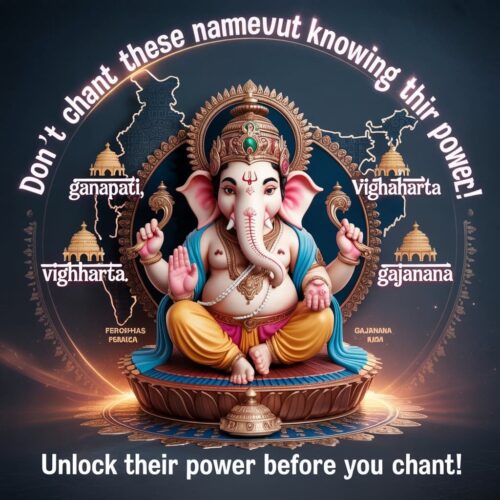
Various names of Ganesh Accross India. Ganesha 108 names with Meaning
The Many Names of Ganesha: Exploring 108 Names with Their Meanings and Stories
Chapter 1: The Origin of Names – Why Ganesha Has So Many TitlesLord Ganesha, the elephant-headed god of wisdom, intellect, and beginnings, holds a unique place in Indian spirituality. Across the vast cultural tapestry of India, Ganesha is revered under many names. Each name reflects a particular quality, deed, or symbolic aspect of this beloved deity. Whether called Ganapati, Vinayaka, Vigneshwara, or Lambodara, his essence adapts to the hearts of devotees across time and geography

Chapter 2: Vinayaka – The Leader of All
The name Vinayaka is perhaps one of the oldest titles used for Ganesha. In Sanskrit, Vina means ‘without’ and Nayaka means ‘master’ or ‘guide’. So Vinayaka translates to ‘the supreme leader’ — one who has no master above him. In Southern India, especially Tamil Nadu and Andhra Pradesh, Vinayaka is worshipped with great fervor. Temples refer to him as Pillaiyar (noble child) and his image is often seen seated with grace and benevolence

Chapter 3: Vigneshwara – Remover of Obstacles
One of the most commonly recited names of Ganesha is Vigneshwara, or Vighnaharta. Derived from the Sanskrit words Vighna (obstacle) and Ishwara (lord), it identifies Ganesha as the lord who removes impediments from the paths of his devotees. This is why, before starting any auspicious venture — be it a wedding, a journey, or a business — Indians invoke Lord Ganesha’s name

Chapter 4: Ganapati – The Lord of Multitudes
Ganapati, another ancient name, comes from Gana (a group or multitude) and Pati (lord or ruler). Ganesha is considered the lord of Shiva’s celestial army — the ganas. He is both their commander and spiritual guide. Ganapati is mentioned extensively in the Ganapati Atharvashirsha, a sacred Sanskrit text chanted by many devotees

Chapter 5: The Story Behind Ganesha Becoming the Son of Lakshmi
In many households, Ganesha is not just considered the son of Parvati and Shiva, but also a spiritual son of Lakshmi. A lesser-known but widely loved story says that Lakshmi, the goddess of wealth, once grew fond of young Ganesha’s intellect, charm, and wisdom. She declared that wherever Ganesha is worshipped, her blessings would also reside. This is why during Diwali, people pray to Lakshmi and Ganesha together, seeking prosperity and wisdom in unity

Chapter 6: 108 Names of Ganesha with Meanings
Here is a sacred list of 108 names of Lord Ganesha along with their meanings — often chanted during Ganesh Chaturthi, Ganesh Aarti, and daily prayers:
- Akhuratha – One whose chariot is pulled by a mouse
- Alampata – Ever eternal Lord
- Amit – Incomparable Lord
- Anantachidrupamayam – Infinite and conscious
- Avaneesh – Lord of the whole world
- Avighna – Remover of obstacles
- Balaganapati – Beloved child form
- Bhalchandra – Moon-crested Lord
- Bheema – Gigantic
- Bhupati – Lord of the Gods
- Bhuvanpati – God of the Gods
- Buddhinath – God of wisdom
- Buddhividhata – God who awards wisdom
- Chaturbhuj – Four-armed Lord
- Devadeva – Lord of all lords
- Devantakanashakarin – Destroyer of evils and demons
- Devavrata – One who accepts all penances
- Devendrashika – Protector of the Gods
- Dharmik – One who gives charity
- Dhoomravarna – Smoke-hued Lord
- Durja – Invincible Lord
- Dvaimatura – One who has two mothers
- Ekaakshara – He of the single syllable (Om)
- Ekadanta – Single-tusked Lord
- Ekadrishta – Single-focused vision
- Eshanputra – Son of Shiva
- Gadadhara – One who holds the mace
- Gajakarna – Elephant-eared Lord
- Gajanana – Elephant-faced Lord
- Gajananeti – Elephant-faced Lord
- Gajavakra – Trunk-like elephant
- Gajavaktra – Elephant-mouthed Lord
- Ganadhakshya – Lord of all ganas (attendants)
- Ganadhyakshina – Leader of all celestial bodies
- Ganapati – Lord of multitudes
- Gaurisuta – Son of Gauri
- Gunina – Lord of virtues
- Haridra – Golden-colored Lord
- Heramba – Mother’s beloved son
- Kapila – Yellowish-brown colored
- Kaveesha – Lord of poets
- Kirti – Lord of music
- Kripalu – Merciful Lord
- Krishapingaksha – Yellowish-brown eyed
- Kshamakaram – The abode of forgiveness
- Kshipra – Easy to appease
- Lambakarna – Large-eared Lord
- Lambodara – Pot-bellied Lord
- Mahabala – Enormously strong Lord
- Mahaganapati – Omnipotent and supreme Lord
- Maheshwaram – Lord of the universe
- Mangalamurti – Auspicious Lord
- Manomay – Winner of hearts
- Mrityuanjaya – Conqueror of death
- Mundakarama – Abode of happiness
- Muktidaya – Bestower of eternal bliss
- Musikvahana – One who rides a mouse
- Nadapratithishta – One who appreciates music
- Namasthetu – Destroyer of evils
- Nandana – Lord Shiva’s son
- Nideeshwaram – Giver of wealth and treasures
- Omkara – Creator of Om
- Pitambara – Yellow-clad Lord
- Pramoda – Lord of all abodes
- Prathameshwara – First among all
- Purush – The omniscient personality
- Rakta – Red-colored Lord
- Rudrapriya – Beloved of Shiva
- Sarvadevatman – Accepter of all celestial offerings
- Sarvasiddhanta – Bestower of skills and achievements
- Sarvatman – Protector of the universe
- Shambhavi – Son of Parvati
- Shashivarnam – Moon-colored Lord
- Shoorpakarna – Large-eared Lord
- Shuban – All auspicious Lord
- Shubhagunakanan – Mine of all virtues
- Shweta – Pure white Lord
- Siddhidhata – Bestower of success
- Siddhipriya – Giver of success
- Siddhivinayaka – Bestower of success
- Skandapurvaja – Elder brother of Skanda
- Sumukha – Auspicious face
- Sureshwaram – Lord of all lords
- Swaroop – Lover of beauty
- Tarun – Ageless
- Uddanda – Nemesis of evildoers
- Umaputra – Son of Uma (Parvati)
- Vakratunda – Curved trunk Lord
- Varaganapati – Bestower of boons
- Varaprada – Granter of wishes
- Varadavinayaka – Bestower of blessings
- Veeraganapati – Valiant warrior
- Vidyavaridhi – God of wisdom
- Vighnahara – Remover of obstacles
- Vignaharta – Destroyer of obstacles
- Vighnaraja – King of obstacles
- Vighnarajendra – Lord of obstacles
- Vighnavinashanaya – Destroyer of all obstacles
- Vigneshwara – God of obstacles
- Vikat – Huge-bodied
- Vinayaka – Supreme leader
- Vishwamukha – Master of the universe
- Vishwaraja – King of the world
- Yagnakaya – Accepter of sacrificial offerings
- Yashaskaram – Giver of fame
- Yashvasin – Beloved and ever-famous
- Yogadhipa – Lord of yoga
- Yuktahaar – One who controls desires

Conclusion: Ganesha Lives in Every Name We Chant
Each of these names holds power. When we chant them, we invoke his energies — for success, peace, wisdom, and guidance. From temples in Tamil Nadu to homes in Gujarat, from shrines in Odisha to hearts in Punjab, Ganesha Ganapati is omnipresent in every syllable.
Devotee’s Choice:
- Ganesha 108 Names Scroll in Sanskrit with English Meaning – Ideal for meditation and daily recitation.
- Copper Yantra of Ganapati with Etched 108 Names – For sacred placement in home altars or meditation corners.
Related Articles:

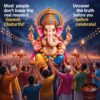



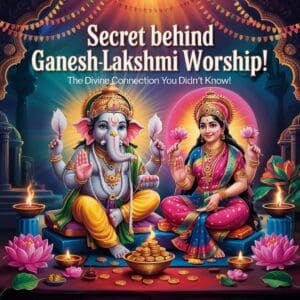
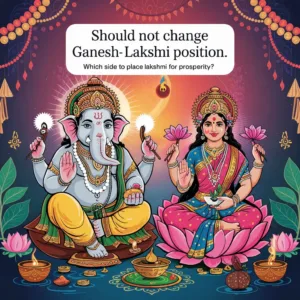
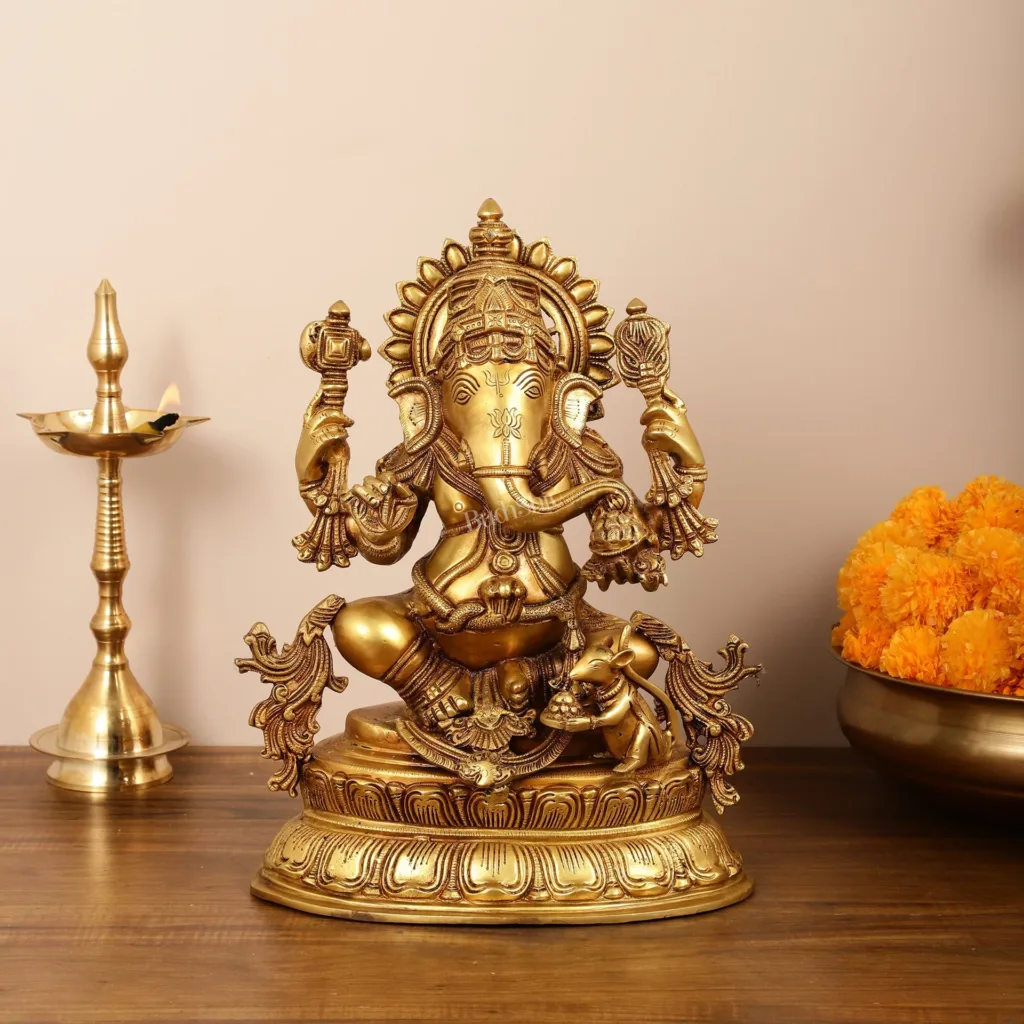
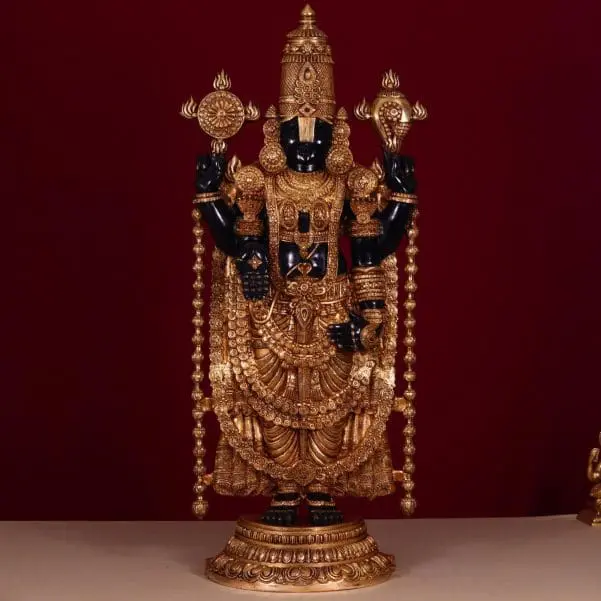
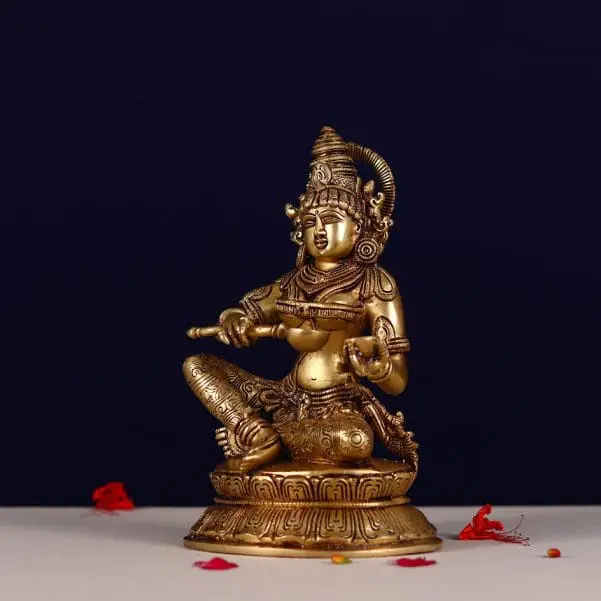
Add comment